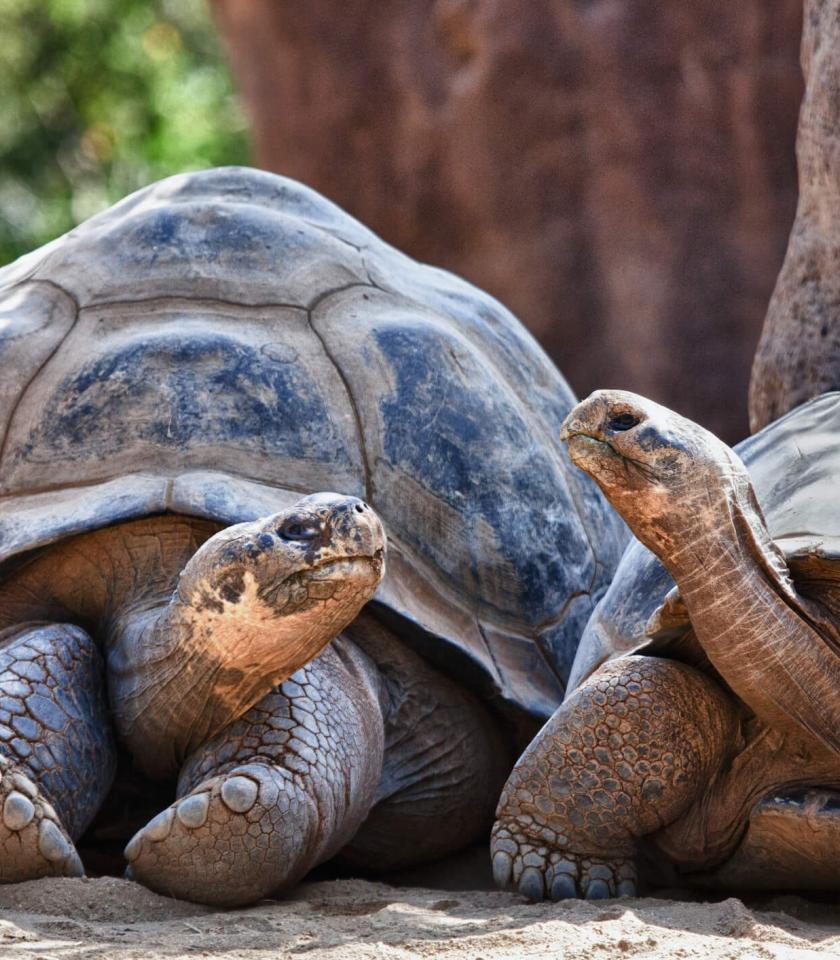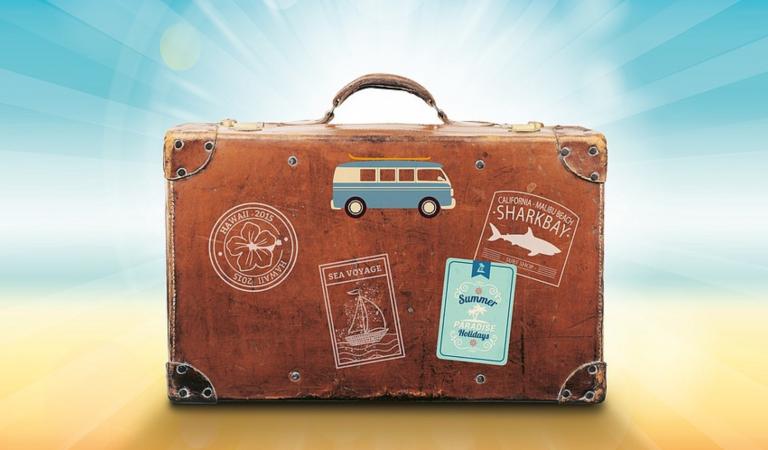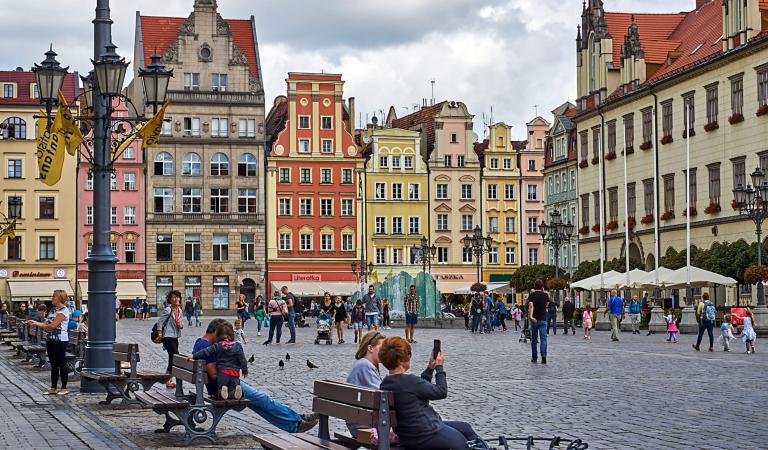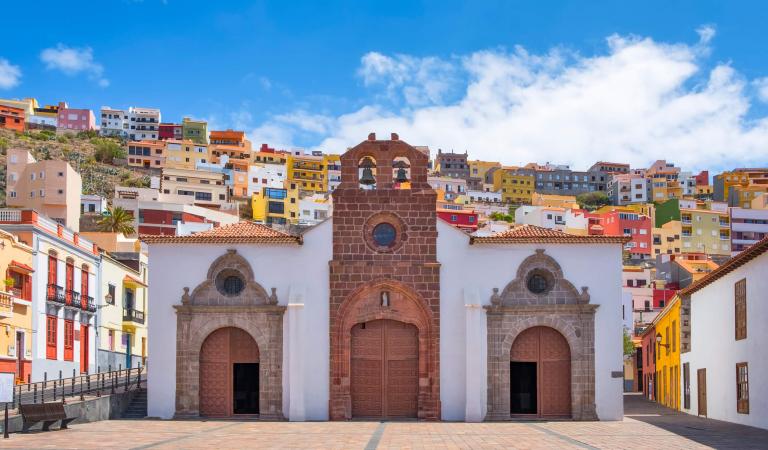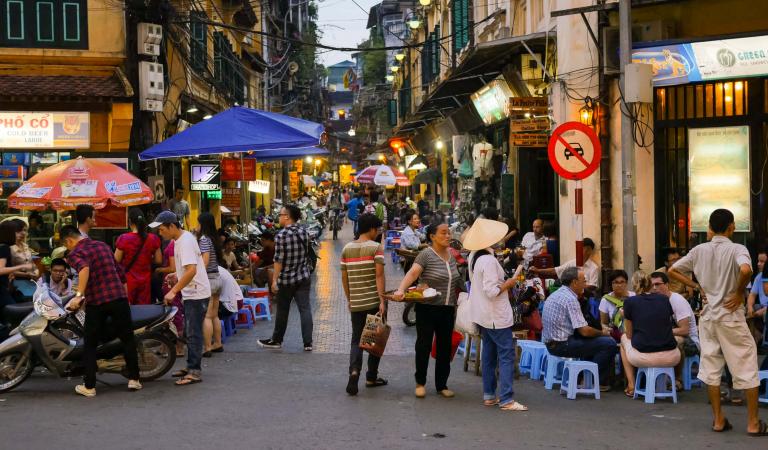After I finished my teacher training course and first degree, I attended a CELTA course in International House in London, never thinking that it would be the basis of a career in TEFL that has spanned more than 20 years and four continents.
I have taught English to all levels of students and to all ages and have seen more of the world than I ever dreamed of – 130 countries at the last count. I always think that English as a Foreign Language (EFL) teachers are ambassadors for world peace and know that my knowledge of many cultures has enabled me to have a deep understanding of the world and its people.
One of the greatest advantages of teaching in other countries has been the possibility of working as a volunteer in organisations based in them. One of my most rewarding experiences was, and continues, to be volunteering in the Galapagos Islands, Ecuador with a small organisation that was called New Era Galapagos Foundation, but is now called Projects Galapagos.
It is based on San Cristobal Island, on which Puerto Baquerizo Moreno, the capital, is located. When I was there, the NEGF was involved in teaching English and scouting to children and teenagers and was located in a very small building with one classroom and an office. Sometimes the director taught the children himself, but on other occasions he had volunteers helping him.
I was not involved with teaching but helped develop a curriculum for primary and secondary pupils, and for the summer school that is held in the South American school holidays. Then the children have outdoor activities such as swimming and sports and arts, crafts and English courses, which also focus on protecting the environment and conservation. At that time, when there were enough volunteers, people tidied up school playgrounds and classrooms and were involved in painting murals on school walls and other areas of the town.
While working there, I contacted various organisations around the world to try to find more volunteers and equipment for the centre, and due to the kindness of people living overseas, we managed to obtain books, a projector and other school necessities. My connection with it continued after I left and since then, the director has managed to link up with Projects Abroad, one of the biggest volunteer organisations in the world, that began and continues to support Projects Galapagos, which changed its name three or four years ago.
Thanks to Projects Abroad, all the projects run by Projects Galapagos have been very successful and the ideas developed by Willliam Puga, the director, have grown and been supported by Projects Abroad. Now volunteers go there to work on conservation projects, such as eliminating invasive species, e.g. blackberries and rats, growing plants for giant tortoises and looking after their living areas and ponds in the Galapaguera, the local giant tortoise breeding centre. Other projects involve having Dirty Days when people collect rubbish from the beaches and sea, and from town areas. Painting murals has evolved into fixing and providing playgrounds for school children, helping run football training courses, and proving much more structured arts and crafts activities.
The small classroom and office have changed to bigger premises and PG has its own eco-centre in the Highlands, with accommodation and classrooms. Teaching has also developed into care projects in kindergartens, and many volunteers have worked and continue to work with very young children, giving them extra attention when they are in class and helping them with remedial teaching.
I have been back twice since the first visit and it is very gratifying to know that I and the other volunteers are helping one of the endangered areas of the world. Many people do not want to leave, and several go back to volunteer or visit again. Whenever I hear seals barking, I think about my days on the island, being part of a community that is so isolated and that draws so many people to it.
PG is always looking for volunteers and interns and would be very interested in having International House teachers and students work with them. The pupils are now working towards sitting exams run by International House and would benefit greatly from having trained teachers on the island, either to work in the PG centre or assist teachers in the local schools and kindergartens. Volunteers can be responsible for their own courses in the centre and are also free to suggest new courses that can be run while they are on the island, such as teaching music or art. If you are still studying, it is also possible to conduct research on the island and use the data to complete academic papers. This can be for teaching English or even Spanish, but could also be about a conservation topic.
As an EFL teacher, you will have many opportunities to be involved in projects outside the classroom, such as working in orphanages in Malaysia, taking part in conservation projects, or teaching sports. This type of teaching is fun and very rewarding, and teachers build life-long friendships with their students. Since you may be living in foreign countries, you will probably learn as much as you teach, and your student will become your teachers, enlightening you about their country, language, food and culture.
I am sure that my friends and family think I am always on holiday, since I often fly off to exotic destinations that other people can only dream about visiting. Recently I was working in Beijing and feel very privileged to have had the opportunity of living and getting to know such a distant city that in some ways is very different from other ones I have lived in. It is the exact antithesis of living and working on a small island in the Pacific, but both experiences were extremely rewarding. While I was standing in crowded carriages on the Beijing subway, I would think about the days when I was the only person on a perfect, Galapagos beach or sitting beside a giant tortoise, listening to it hissing if I went too close to it, and now and again I would think about my IH classroom in London, sitting looking out of the windows and dreaming of working abroad.
To find out more about the Projects Galapagos volunteering opportunity, click here. https://www.projects-abroad.co.uk/projects/conservation-volunteering-galapagos-islands/


